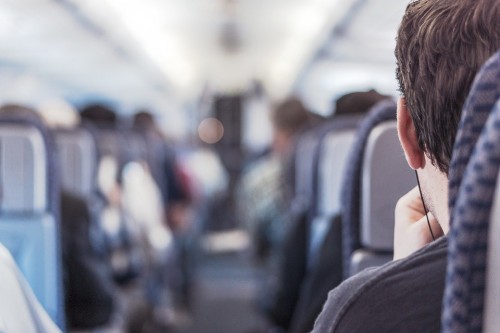Ashford Clinic Blog
Ears and Altitude

If you have ever travelled by air, it is likely that you have experienced ear problems, particularly during takeoff and landing. Many people suffer from “popping” or “blocked” ears, commonly referred to as Airplane Ear, during air travel. In fact, ear problems have become the most common medical complaint among people using air travel. While these incidents are usually nothing more than minor annoyances, they have the potential to result in temporary pain and hearing loss.
What causes Airplane Ear?
Airplane Ear, or Ear Barotrauma, is caused by situations involving rapid changes in air pressure and/or altitude. Put simply, it is the stress exerted on your eardrum and other middle ear tissues when the air pressure of your environment and the air pressure in your middle ear are out of balance. The rapid change in air pressure is more extreme when a plane is landing than it is when a plane is taking off, but ear barotrauma is also possible while diving to the bottom of a swimming pool or riding in an elevator.
What is happening inside of the ear is that the middle ear pressure cannot be equalized. When the air already in the middle ear is absorbed, a vacuum occurs that sucks the eardrum inward and stretches it, which can be painful. An eardrum in this state cannot vibrate naturally, resulting in sounds being muffled or blocked. Fluid will seep into the area in an attempt to overcome the vacuum if the tube remains blocked, so it is important to equalize ear pressure as soon as possible.
How to Equalize Your Ear Pressure
There are several methods for equalizing your ear pressure when experiencing airplane ear, including:
-Yawning
- Swallowing
- Sucking on hard candies
- Chewing gum
- Pinch your nostrils shut, breathe in through your mouth, and attempt to blow air through your nose as if you were gently blowing your nose. This will result in a pressure buildup that should successfully unblock your ears when a “pop” is heard. This method may need to be repeated a number of times, particularly during descent.
- Some physicians recommend the use of decongestants and nasal sprays, but be sure to talk with your doctor before taking any medications.
If this is a chronic issue for you, or if you experience chronic ear pain or changes in hearing in any way, consult your doctor immediately


